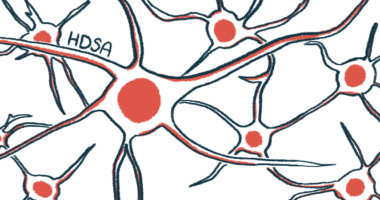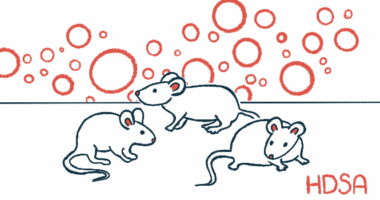Vienna to Host European Conference on Huntington’s Disease in Mid-February

Vienna, Austria's capital, will host the European Conference on Controversies in Huntington's on Feb. 13 and 14. (Photo by Larry Luxner)
As many as 80 experts from a dozen countries will gather next month in Vienna for the European Conference on Controversies in Huntington’s Disease (ECCH2020).
The Feb. 13–14 meeting “aims to increase awareness and interests around the main aspects” of Huntington’s disease, which according to the European Huntington Association afflicts roughly 50,000 Europeans.
Organized by London-based Bioevents, the conference will be chaired by Marina de Tommaso, a neurologist and full professor at Italy’s Bari University. De Tommaso also heads a regional Huntington’s referral center in Italy, where disease prevalence is about 4 or 5 per every 100,000 people.
The disease usually develops around the age of 45 or 50, although much earlier in some patients, and affects males and females equally.
“Huntington’s is a disabling disorder, and generally, the earlier a patient is diagnosed, the shorter life expectancy is,” De Tommaso said in a phone interview. “If diagnosed at 20, for example, survival is about 10 years on average. But if it’s an older age onset … we might expect a patient to reach his 70s or even 80s.”
ECCH2020, to take place at Vienna’s Radisson Blu Park Royal Palace Hotel, features speakers from half a dozen countries. De Tommaso will present two studies, “Neurophysiological Basis of ‘Pain or No Pain’ in Huntington’s Disease” and “Biological Properties of Placebo and Global Advantage in Clinical Trials.”
De Tommaso said her regional referral center treats about 200 Huntington’s patients.
“I became fascinated by this particular disease 30 years ago when I was a student, and my professor asked me to follow some patients. I was very interested in these families and have continued to follow these patients,” she told Huntington’s Disease News.
Dutch neurologist Wilco Achterberg with Leiden University Medical Center will also talk about the prevalence of pain in Huntington’s, while Spain’s Nieves González Gómez, R&D manager at Madrid’s Center for Genetic Studies, will present her study, “Customized Dietary Intervention Avoids Unintentional Weight Loss and Modulates Circulating miRNAs Footprint in Huntington’s Disease.”
Also on the conference agenda are Germany’s Herwig Lange, MD, talking on “Physical Therapy: When, Where and How,” and Georg Bernhard Landwehrmeyer, MD, on “Current Treatments in Huntington’s Disease”; as well as Czech neurologist Jiri Klempir, speaking on “Vitamins and Integrators.”
Currently, some 2,000 Italians are listed in a global registry of about 15,000 Huntington’s patients. The actual number of patients worldwide is believed to be much higher.
Several companies are working on potential gene therapies for this disease, including Wave Life Sciences, uniQure and Roche. Of particular interest is RG6042, also known as IONIS-HTTRx — an experimental therapy that showed some promise in a small-scale study by Ionis Pharmaceuticals, which originally developed the therapy.
Now owned by Roche, RG6042 is an antisense oligonucleotide treatment that aims to target and destroy all forms of the mutant huntingtin protein — the underlying cause of Huntington’s.
Frank Bennett, PhD, senior vice-president of research at Ionis, recently called RG6042 “potentially the biggest breakthrough in neurodegenerative disease in the past 25 years.”
De Tommaso said that if the new Roche therapy is approved, more people would likely submit to genetic screening for the presence of Huntington’s.
“Predictive testing is a very difficult issue. We propose genetic testing to people at risk for the disease, but it depends on the individual. They decide for themselves what’s best,” she said. “Obviously, if we’ll have a new treatment available from the very early phase of the disease, the point of view about predictive tests would change.”
To register for ECCH2020, please click here or send an email to this address.








